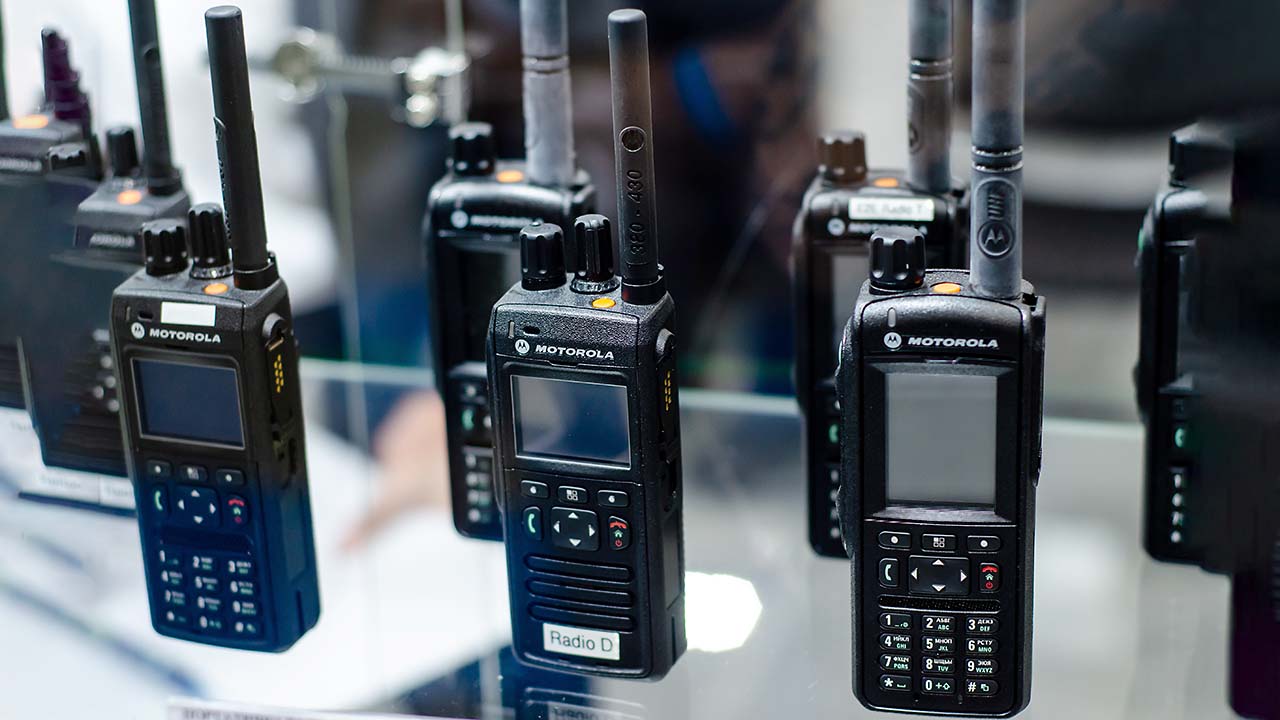Decision Nears for Emergency Communications

A long-overdue upgrade to land mobile radio systems used by Weston’s emergency responders could finally be in the offing, as voters may soon be asked to approve drawing funds from reserves to invest in major improvements.
For several years, around $2 million of the Town’s fund balance has been informally set aside, knowing the upgrade was needed. As time has passed and prices for almost everything have risen, that amount may no longer be sufficient for either of two options currently being considered.
First Selectwoman Samantha Nestor said she is actively working to secure grants to augment funds already on hand. She hopes to convene a Special Town Meeting in late spring, once a final technology decision is made, full costs are known, and the Board of Finance approves a funding request to submit to voters. (See also Ms. Nestor’s Letter to the Editor.)
The need
Weston’s communications network consists of a tower at Town Hall, another at the Transfer Station, three repeaters at various locations, dispatch consoles, pagers, and handheld radios used by police, fire, Public Works, and EMS personnel.
As far back as 2018, we reported that many of the radios, especially those used by police officers, are old, no longer supported by manufacturers, a challenge to maintain, and susceptible to signal loss in many areas. Since then, they have exceeded their useful life by another five years.
But the most important system shortcoming, according to the chiefs of Weston police, fire, and EMS, is that it does not interoperate with frequencies used by neighboring towns. Weston often relies on mutual aid from Wilton, Westport, and Norwalk, and those towns equally rely on Weston for support in emergencies.
Recently, Weston Communications Director Larry Roberts, aided by a consultant, completed a year-long analysis of the town’s emergency communication needs. The study included a status report on every system component and unit, a survey of emergency responders, tests of signal strength in every neighborhood, and conferring with nearby towns, many of which are preparing upgrades to their own systems or have already made them.
Two options emerged from the analysis. Mr. Roberts described them to the Board of Finance last August. He discussed them more recently in a Y’s Men podcast with First Selectwoman Nestor.
Cost estimates, then and now, are preliminary. As we understand it, a request for proposals will be sent to vendors soon.
Option 1: Update existing
One option is to replace outdated components of the current system with new ones. Cost estimates range from $2.6 million to $3.1 million.
Fixed network equipment and consoles would be refreshed, the digital system used by the police would be updated, and analog systems used by Fire and Public Works would be upgraded to digital.
Mr. Roberts said this approach would work, but would not solve the problem of connecting with mutual aid partners.
Option 2: Connect to the state system
The second option is to migrate Weston’s current public safety communications system to the Connecticut Land Mobile Radio Network, which was originally built for the State Police. Years ago, capacity expanded to allow municipalities to connect, for an annual fee.
Estimates for this option range from roughly $3.6 million to $4.4 million.
While they wince at the higher price, this is the approach the chiefs, long frustrated by signal dead zones and an isolated system, strongly and unanimously prefer.
It is the road being taken by Weston’s mutual aid partners and would provide interoperability with their systems. In Weston, first responders would have clear radio reception everywhere, with signals emanating from two new towers that would replace existing ones, plus four in neighboring towns.
The annual fee charged to the town (described as “hefty”) includes maintenance, repair, and replacement of components as they age out, which means Weston could largely avoid the need to once again replace obsolete equipment in 10 or 15 years.
Next steps
Assuming this project proceeds in one form or another, which seems likely, the Town Charter requires that an off-budget appropriation of this size be proposed by the Board of Finance to voters for approval at a Special Town Meeting. Ms. Nestor said she hopes that can occur by June.
In the meantime, more about the project can be heard on the two-part Y’s Men podcast mentioned above. A detailed briefing document provided to the Board of Finance in August by Mr. Roberts and Paul Zito of New England Radio Consultants can be viewed and downloaded here.
Photo: Олександр Луценко/Adobe Stock
